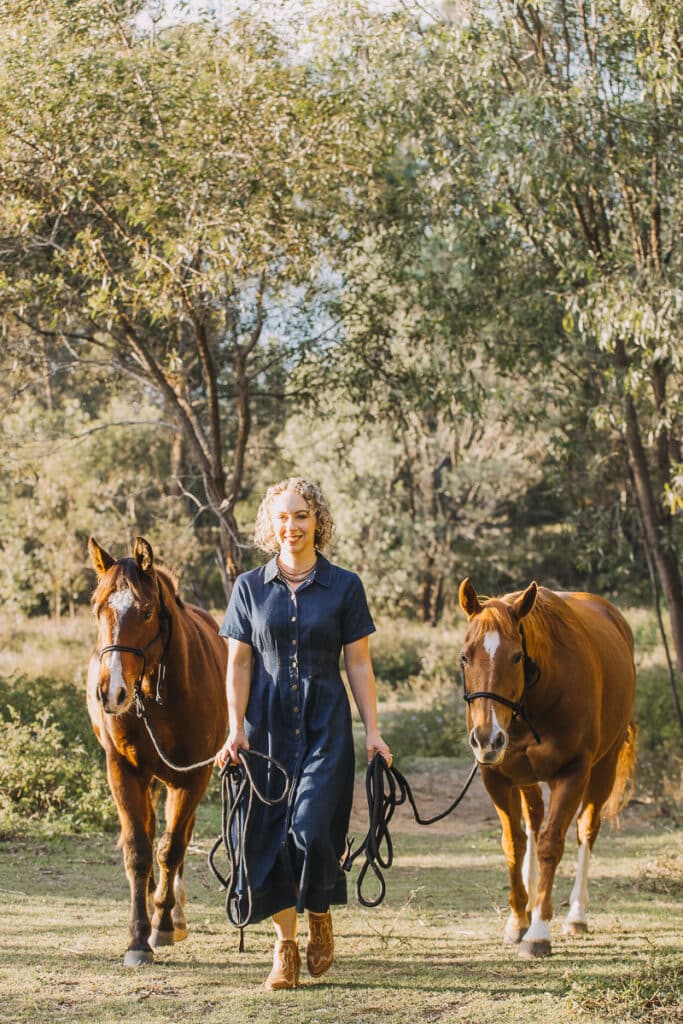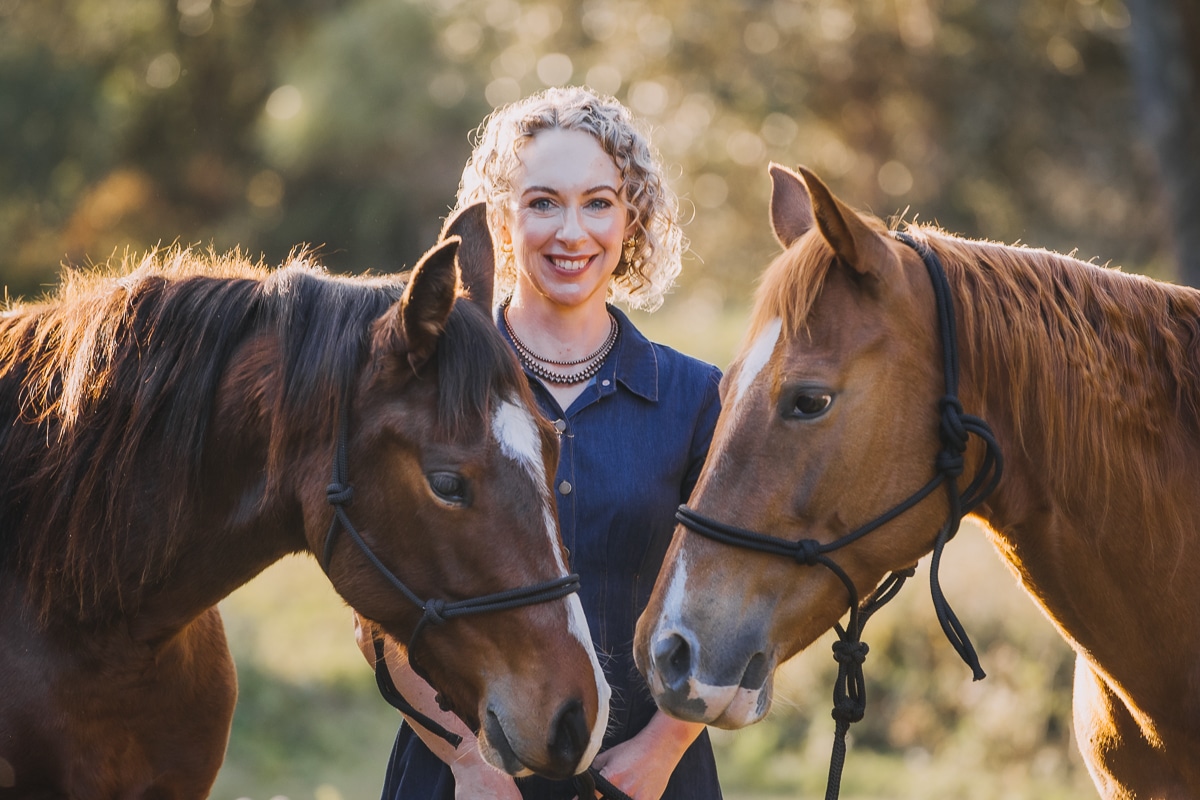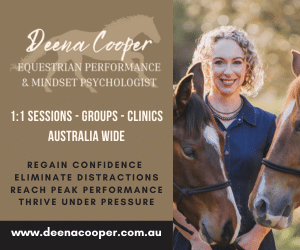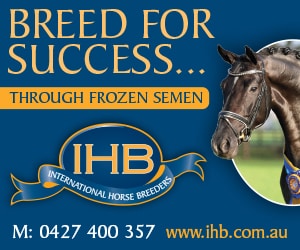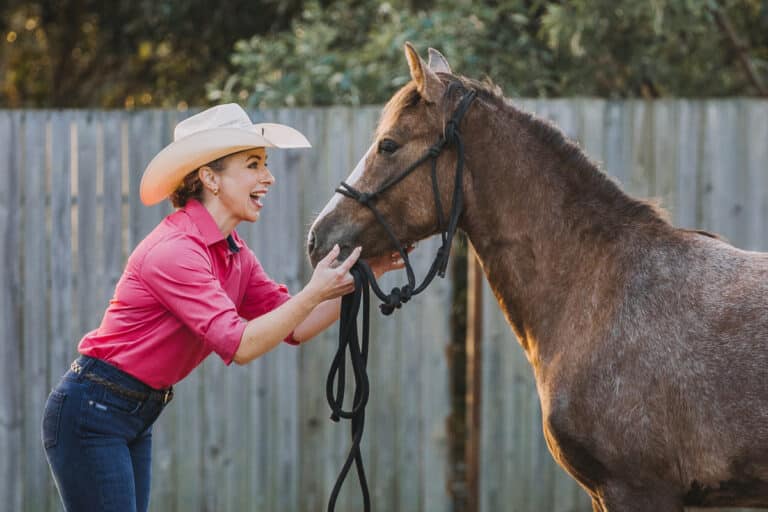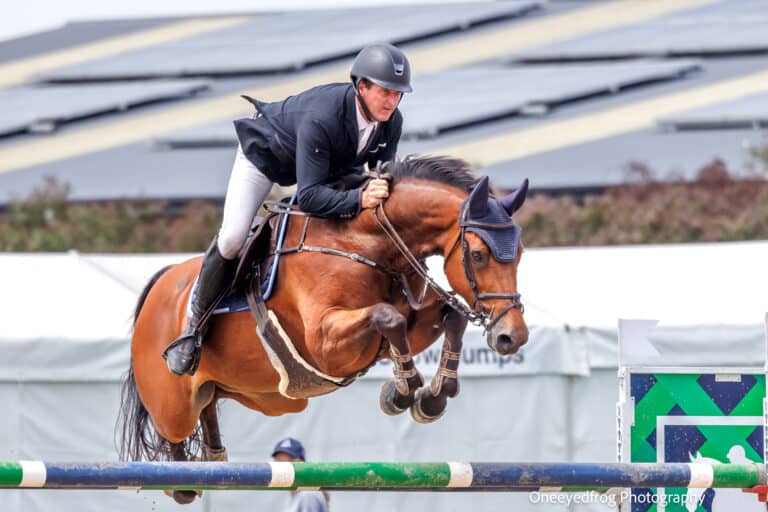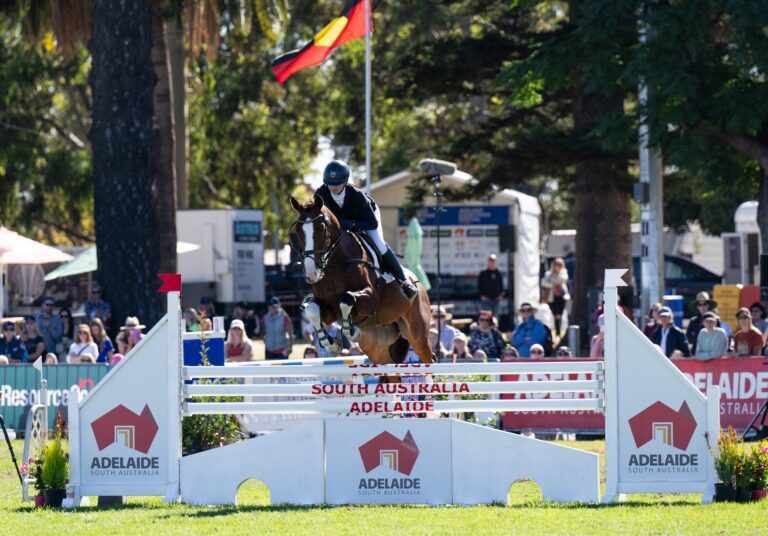As a Performance and Mindset Psychologist who works exclusively with equestrians and as a competitor myself, I know the unique partnership riders have with their horses adds an entire layer of complexity that other sports don’t have. You’re not just managing your own mind; you’re managing two nervous systems. That’s why the right kind of winning mindset is so important. It’s a surprise to many that cultivating a competition mindset isn’t about trying harder to suppress your nerves; it’s about shifting your approach to them.
Here are my top tips for a rock-solid competition mindset that lets you and your horse shine.
1. Stop wrestling with your brain
Before you even step into the show grounds, understand this: your brain is a brilliant, over-cautious time machine. It’s constantly pinging you with worst-case scenarios (“What if you miss the distance?” “What if the judge thinks your extension is flat?”). This is normal. It’s part of our evolutionary survival mechanism, not a sign you’re unfit to compete.
Most riders try to push these thoughts away, arguing with them, or judging themselves for having them (“I shouldn’t feel this nervous,” or “I need to be more confident”). This mental wrestling match is exhausting and actually amplifies the distraction.
The fix: See those worrisome thoughts and jittery feelings as just mental noise and physical sensations — like a car radio that’s on in the background. Don’t try to turn it off. Just notice it: “Ah, there’s the ‘I’m going to forget my test’ thought,” or “Yep, my tummy feels like it has butterflies.” Then, gently bring your focus back to what’s in front of you: the feel of the reins, the rhythm of the trot, or the jump you’re approaching.
2. Ditch the destination, just choose your direction
So many competitors get fixated on the outcome — the ribbon, the score, the qualification. While those goals are great motivators, focusing on them in the moment of competition only piles on the pressure. Why? Because the outcome is largely out of your direct control (hello, judge’s opinion, horse’s mood, and plain old luck!).
The truly successful equestrians focus on what they can control.
The fix: Before you enter the ring, define your ‘Intention for Action’. This isn’t your score goal; it’s the quality of riding you want to bring to that moment.
Instead of: “I want to win the class.”
Try: “My intention is to ride every stride with a deep seat and maintain a consistent, honest rhythm.”
Instead of: “I want a clear round.”
Try: “My intention is to keep my eyes up, ride forward and balanced between the jumps, and trust my horse.”
This shift takes the pressure off the result and anchors you to the specific, actionable riding principles that bring about your best performance. It’s about being fully present in the process.
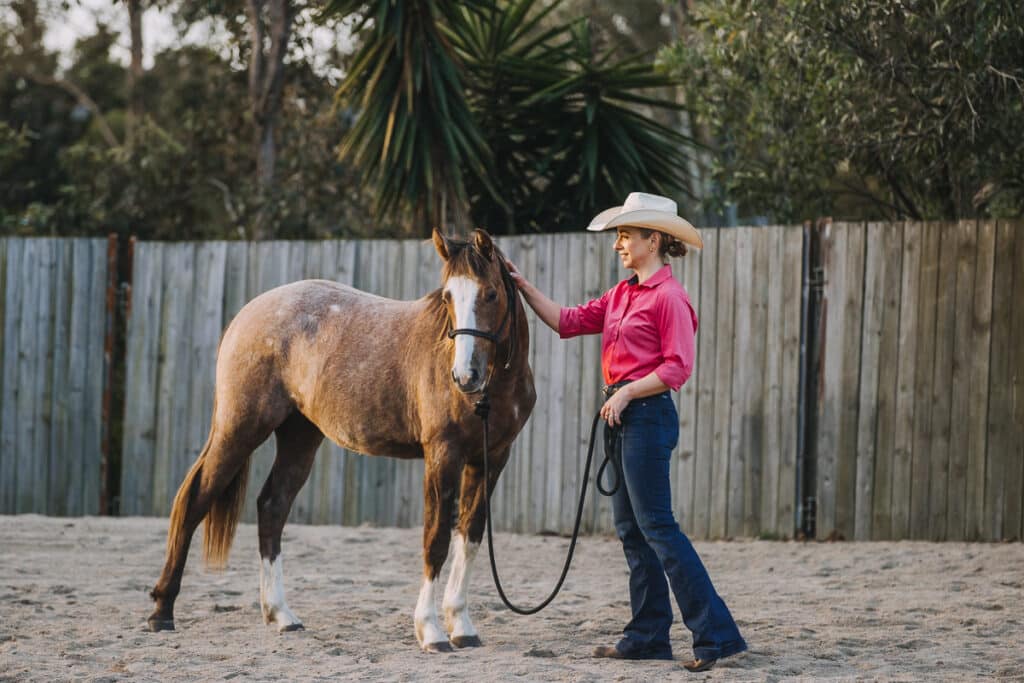
3. Commit to the “Next Stride” rule
When the inevitable mistake happens — a sticky stride, a spook, a lost canter lead — what do most riders do? They internally become their worst critic, dwelling on the error. “Ugh, I blew that corner! Now I’ve ruined it.” This drags your focus backward in time, making you miss the crucial ten seconds of riding that are happening right now.
The fix: Adopt the “Next Stride” Rule. Your horse needs you to be present. If something goes wrong, give yourself a micro-second to acknowledge it (“Oops, we had a stumble”), and then immediately — and I mean immediately — let it go and commit 100% to the ride that is unfolding in the very next stride.
Your performance is not determined by a single mistake; it’s determined by your response to that mistake. A successful ride is just a collection of successfully recovered-from moments.
Elevate your mental game: beyond theory to action
These strategies represent a fundamental shift in your approach to competition — moving from reactive, emotion-driven riding to proactive, principle-based performance. However, like mastering the feel of a perfectly timed half-halt, applying these mental skills effectively and consistently takes focused practice and the right kind of support. It can be challenging to learn, integrate, and deploy these techniques under pressure without the right kind of guidance.
If you’re ready to stop letting performance anxiety, self-doubt, or the weight of expectation hinder your competitive success, it’s time to prioritise your mental game. The unique demands of equestrian sport necessitate mental resilience and unwavering commitment, and developing these skills is often the final piece needed to unlock your full potential.
For me, supporting riders to overcome the mental barriers and become more consistent, confident riders is incredibly rewarding. This passion stems from my own journey, having personally experienced the shift from self-doubt and performance anxiety to consistently performing under pressure. I understand these challenges firsthand, and it’s this understanding that fuels my dedication to helping others achieve similar breakthroughs — cultivating a deeper, more confident connection with their horses and the sport they love.
Learn more about mastering the mental game with Deena Cooper – Equestrian Performance Psychologist and follow @deenacooperpsych
